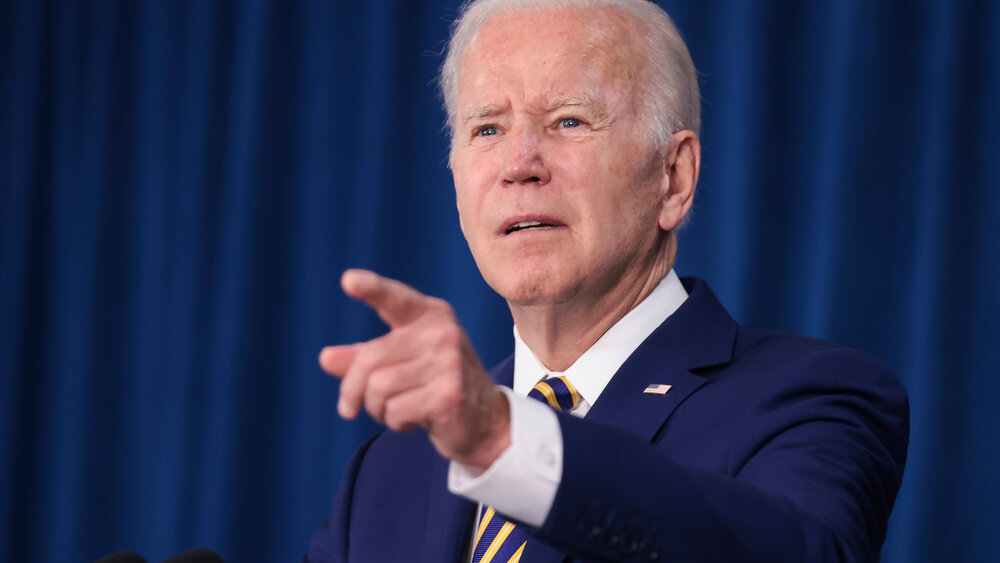Experts urge Biden to intensify diplomacy to revive Iran nuclear deal

TEHRAN - Experts from the Arms Control Association have strongly urged President Joe Biden to immediately intensify diplomatic efforts to break the stalemate on talks to restore compliance with the 2015 Iran nuclear deal, officially known as the Joint Comprehensive Plan of Action (JCPOA).
International Atomic Energy Agency (IAEA) Director-General Rafael Mariano Grossi warned that efforts to restore the JCPOA will face a “fatal blow” within three to four weeks, after Iran announced on June 9 that it was disconnecting certain cameras monitoring key nuclear facilities.
This week, Iran disconnected 27 cameras monitoring key nuclear facilities in retaliation for an IAEA Board of Governors resolution urging Iran to cooperate with the agency on its investigation of alleged undeclared nuclear materials from the pre-2003 nuclear program.
The IAEA risks losing its continuity of knowledge about Iran’s nuclear activities—which is necessary for restoring the JCPOA—if the cameras remain disconnected for more than 3-4 weeks, Grossi said on June 9.
The cameras that Iran has turned off were beyond the Safeguards agreement and were just a voluntary decision by Tehran.
“President Biden clearly supports a restoration of mutual compliance with the JCPOA as the best way to roll back Iran’s potential to produce bomb-grade nuclear material and maintain more stringent International Atomic Energy Agency oversight of Iran’s sensitive nuclear activities,” noted Daryl G. Kimball, executive director of the Arms Control Association. “And it is.”
“Unfortunately, the Biden administration has not treated the growing crisis, which was triggered by former President Trump’s irresponsible withdrawal from the agreement in 2018, with the necessary degree of urgency it deserves,” he charged. “In the wake of new disturbing developments, however, the White House must take immediate action.”
Iran has been insisting that its nuclear program is purely peaceful and it has no intention to build nuclear arms with or without the revival of the JCPOA.
It started to remove limits on its nuclear activities in May 2019 in response to the U.S. pullout from the nuclear deal. Even one year after the U.S. exit from the nuclear deal, Iran remained fully loyal to the agreement. The European parties to the nuclear deal also bowed to U.S. pressure and stopped financial and business trade with Iran.
“A deal to achieve a mutual return to compliance with the JCPOA is on the table and could be quickly implemented—if the United States and Iran move away from hardline positions on the non-nuclear issue blocking agreement: whether and under what conditions to lift a U.S. foreign terrorist organization (FTO) designation on the Islamic Revolutionary Guard Corps (IRGC),” said Kelsey Davenport, director for nonproliferation policy.
“It is past time for both sides to resolve that impasse and finally deliver on what is in the interest of all sides: an agreement to restore compliance with the 2015 nuclear deal,” she said.
“The Biden Administration continues to argue that it is up to Iran to accept the deal or negotiate over the IRGC designation. But it is a failure of leadership on the part of the White House not to announce it will immediately intensify diplomatic efforts to break the impasse on the issue. And blaming Iran, however emotionally or politically satisfying that may seem to be, doesn’t avert the imminent nuclear crisis and it doesn’t advance U.S. national security interests” Kimball said.
Davenport said "Biden will pay a small political cost for lifting sanctions on the IRGC, but it pales in comparison to the enormous national and international security threat of” what she called “a nuclear-armed Iran".
Leader of the Islamic Revolution Ayatollah Ali Khamenei issued a fatwa (religious decree) on April 17, 2010, declaring production, stockpiling and use of weapons of mass destruction, including nuclear weapons, as haram (religiously banned).
“If President Biden fails to promptly conclude negotiations with Iran to restore the JCPOA, it would perpetuate the failed strategy pursued by the Trump administration,” Davenport said, adding, “Biden risks going down in history as the president that allowed Iran to reach the brink of a nuclear bomb. It is past time the United States doubled down on creative proposals to break the impasse.”
Leave a Comment